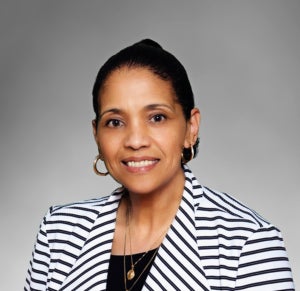After the original candidate chosen by cannabis regulators to be the next executive director of the Massachusetts Cannabis Control Commission declined the role, the commission voted to offer the role to another finalist for the position while devising a back-up plan should this second-choice candidate decline to take on the challenge of leading the troubled agency.
Commissioners voted 4-0 on Wednesday to offer the role to Travis Ahern, the town administrator of Holliston. Ahern was one of the four finalists considered for the position during a public interview process in October.

During the hour-and-a-half long meeting, commissioners also voted in support of a plan which would re-open the process should Ahern decline.
The commissioners battled through confusion over the salary range they were offering candidates.
Ahern did not respond to a request for comment from WBJ, inquiring if he was still considering the job, two months after first being passed over for the role.
Acting Chair Bruce Stebbins began the meeting by confirming David Lakeman, a former CCC staffer who for the past four years has been leading the Illinois Department of Agriculture’s Cannabis Division, declined the role. He then suggested commissioners move to offer the position to Ahern.

But the three other active commissioners expressed a desire to define what next steps would be taken if he too turned down the role and to receive more clarity on what happened with negotiations with Lakeman. Before moving to consider Ahern, Commissioner Kimberly Roy asked Stebbins to read a public statement given to the agency by Lakeman detailing why he turned down the position.
Stebbins confirmed Lakeman shared a statement with the commission, but deferred to Debbie Hilton-Creek, CCC acting executive director and chief people officer, to see if the statement should be made public.
“I can try to find that information,” Hilton-Creek said in reference to the statement, “I just wanted to mention that when we received the statement from Mr. Lakeman, we had a discussion around if we should release the statement. My recommendation is that, given that Mr. Lakeman will not be filling this role, I reach out to him to talk about whether or not we can release that statement.”
Roy asked if they planned on considering candidates that had been passed over in the various hiring rounds before the four finalists were picked.
“After Mr. Lakeman declined, was there any thought of going back to the pool of applicants that didn’t make it to the final round to revisit or re-review?” she asked, noting she wasn’t a part of the hiring committee and didn’t get a chance to consider what she saw as qualified and diverse candidates.
“Some of them managed big government agencies with a lot of managerial experience or had cannabis industry experience,” Roy said. “There were people of color. Did we not even consider perhaps going back and re-evaluating?”
Stebbins said that was not considered. He noted he too had candidates he had liked during the hiring process who were not moved forward because the committee could not reach consensus, but that he would be inclined not to re-open the process to additional candidates.
Commissioner Nurys Camargo then put forward an amendment to Stebbin’s motion, suggesting that if Ahern turns down the role, the agency consider reopening the hiring process, an idea which received support from both Roy and Ava Callender Concepcion.
“There’s been too much nonsense around this process,” said Camargo, “We want to make sure we can start moving forward quickly.”
Roy asked for the amendment to include language requiring the commissioners receive timely updates on the negotiation process with Ahen, which she said didn’t happen during the negotiations with Lakeman.
The discussion then moved to the salary range of the position, which Roy asked if they needed to revisit for transparency purposes.
Hilton-Creek said that conversation wasn’t necessary, as the commissioner had already established a salary range for the role, but after Roy pressed her to disclose it, she struggled to tell the Commission what that range was.
“I apologize but I can’t pull that out of the top of my head right now,” Hilton-Creek said, “I know the salary was posted up to $187,000. However, I believe there was discussion and approval from the commissioners to negotiate above the range.”
After Stebbins asked her again to publicly state the salary range, the agency’s chief HR official said she would need to get that information from her staff.

“I would have to get the minimum from the HR team because I don’t recall that,” she said. “I believe — and don’t quote me on this, media — but I believe it started somewhere around [$150,000] and [$187,000]. I believe the commissioners, without [myself] going back to research the [meeting] minutes and have everyone waiting on me, there was a ceiling I believe of [$212,000].”
Camargo then suggested a break in the meeting so Hilton-Creek could find the exact salary range.
“There’s too much confusion internally, and there’s too much confusion publicly,” she said. “This is a very high-level, serious job that impacts a huge industry in Massachusetts, and the misconception and the miscommunication adds to this process.”
A 10-minute break in the meeting failed to fully clean up the confusion, as Hilton-Creek said after the agency returned that the posted salary range was $156,000 to $187,000. She added commissioners deliberated to give the position a maximum salary of $217,000 if the candidate warranted it.
Roy said she was asking about the salary range because she said she was not updated on the negotiation process with Lakeman until the discussions ended with him declining the role.
“Along the way, I had no information at all until [negotiations] were no longer viable,” Roy said. “I don’t care if it’s a spreadsheet or whatever it is along the process, I’d like to be informed.”
Hilton-Creek expressed concern at the concept of keeping Roy and other commissioners updated on negotiations after every discussion, saying it would be cumbersome, a comment which Roy pushed back on.
“I’d like more [information],” Roy said. “This is our one hire. This is a $7-billion industry. This is a big deal. Thousands of people work in this industry.”
Camargo then jumped into the conversation to clarify that Hilton-Creek had given them accurate information, saying that she had thought the $187,000 figure was a mid-point of the salary range, not the top of the range.
“I’m not the candidate, but I hope it’s more than [$187,000],” she said.
Former CCC leader Shawn Collins had a base salary of $199,939 in 2023 before his resignation in 2023, according to state salary data.
Hilton-Creek said she was accurate in saying $187,000 was the mid-point.
“Traditionally when we post a role within the agency, we always post the position with a salary range up to the mid-point [of the actual range],” she said.
Following the salary discussion, commissioners voted in favor of both the motion to offer the role to Ahern and in favor of reconvening to discuss next steps should he reject their offer.
At the end of what is CCC’s final scheduled meeting of 2024, when commissioners were giving their parting thoughts on the agency’s year and wishing each other and the public a happy holiday season, Hilton-Creek interjected to add her well wishes — and to cast doubt on media reporting regarding the agency’s well-documented dysfunction or her alleged role in it.
“Have a happy holidays with your family,” she said in a message directed to the agency’s 100+ employees. “Don’t listen to anything that’s in the media. It’s not true. We can attest to that.”
Eric Casey is the managing editor at Worcester Business Journal, who primarily covers the manufacturing and real estate industries.

